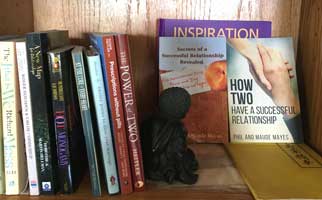Successful Relationship Reading Corner
 This week we wrote about cooperation being a cornerstone of our relationship, and found a number of really great articles about its benefits. This week we wrote about cooperation being a cornerstone of our relationship, and found a number of really great articles about its benefits.
Why COOPERATION Could Be MORE Important Than LOVE! "Could cooperation, be the highest attainment that a couple could strive for in a romantic relationship? In fact, love is often considered almost a synonym for relationship! And I too thought that to attain the state of love was the highest attainment in a couple. I had never considered the ultimate importance of cooperation."
Communication: Competitive vs Cooperative "We are taught from the earliest of ages that good communication is imperative. In both subtle, and direct ways, we are taught to be competitive when we communicate. Simultaneously, we are told to be cooperative. What an impossible task–to be cooperative and competitive at the same time."
We’re Not Against Each Other: Choosing Cooperation Over Competition "In my own life, I have experienced the power of cooperation. I know how much better life feels when I choose to work with rather than against the people in my world. When I am willing to find ways to communicate, to release blame and criticism, to connect with the people I share this life with, I open myself to more joy and ease."
|
|